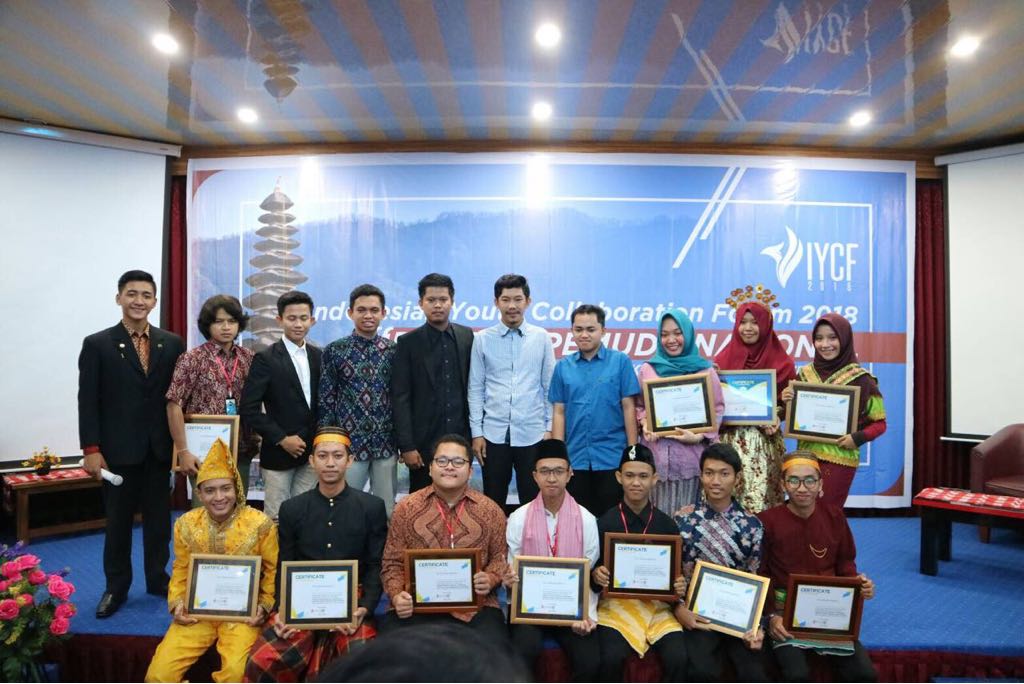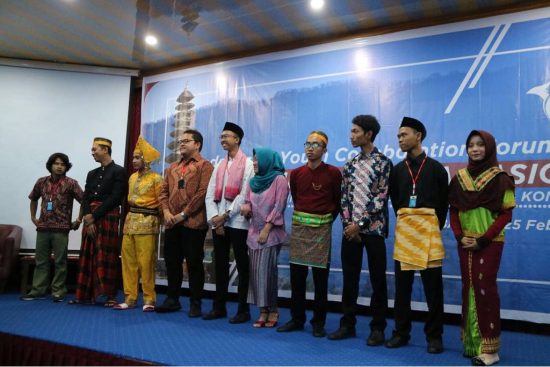Best Delegate for Housing and Settlements
News

Full Name: Nur Arning Tenggara Kasih
NRP: 082115400000031
Title of Activity: National Youth Consultation (referring to RKP 2018)
Title of Competition: Selection of the Best Delegates and Essays in Housing and Settlements
Award: Best Delegate for Housing and Settlements
Mataram – Population problems are not only felt by metropolitan cities. The city of Mataram, West Nusa Tenggara (NTB) is also now experiencing similar problems. As a Regional and City Planning student, Nur Arning Tenggara Kasih presents a solution to this problem. This solution led him to be the best delegate in the Indonesia Youth Collaboration Forum in Bali, beating dozens of other representatives from all provinces in Indonesia in February.
Based on data from the Central Statistics Agency (BPS), the population in the city of Mataram continued to increase during 2014-2016. Even in the 2015-2016 period the population has doubled. The increase in population is so large that the amount of demand and availability of land in the city of Mataram is not balanced. Inevitably, various population problems began to appear in this city.
According to Kasih, the main problem that arises from the booming population in the city of Mataram is the increasing number of conflicts, the proliferation of illegal settlements, and the many slums. These three problems are the aftermath of the emergence of a gap between households that have a residence and those that are not, or known as backlogs. “In NTB the problem of settlement has not been the dominant conversation,” he said.
In order to overcome settlement problems, according to Kasih, Mataram needs to develop a Land Bank concept. Furthermore, Land Bank is the provision of land in an area to be stored and reserved for future development. This concept has been applied in several countries, including the Philippines and a number of countries in Europe.
In a Land Bank designed by Kasih, land controlled by the state such as abandoned land and land that has not been used by BUMD is fully controlled by the government. In addition, the high taxation of land that has not been sold for more than 10 years is also part of the Love strategy in this Land Bank. “Land that is not used in a certain period of time must also be sold to the government, to be more productive,” explained Kasih.
Meanwhile, to solve the problems of Mataram slums, a different approach is needed. Settlements with basic building coefficient values (KDB) above 80 percent are directed to the obligation to plant vines or roof gardens. This is done in order to maintain the aesthetics of the settlement and eliminate the slum impression. “But an approach like this requires the participation of all stakeholders for a joint development solution,” explained this third year student.
After becoming best delegates in Bali, Kasih felt he had a responsibility to improve spatial planning in NTB, especially the city of Mataram. This daughter born in Klaten has prepared a social project called RUAS (Continuing Nation Room).
This program contains a number of agenda discussions and concrete actions to improve spatial planning that is ready to be developed in NTB. Love has also vowed to carry out this project. “This social project is also to help the KOTAKU program (a city without slums) launched by the government,” he finished. (mik/qi)

Latest News
-
One on One Consultation Day
Interested in the URP ITS-Curtin University, Australia Double Degree program? Don’t miss the opportunity to consult directly with Patricia
-
Guest Lecture Prof. Agus Zainal
The ITS PWK Department will hold a guest lecture on the topic “Implementation of Disaster Management in Indonesia” which
-
Guest Lecturer Prof. Azizan – USM Malaysia (May 03, 2023)
Post Views: 587





